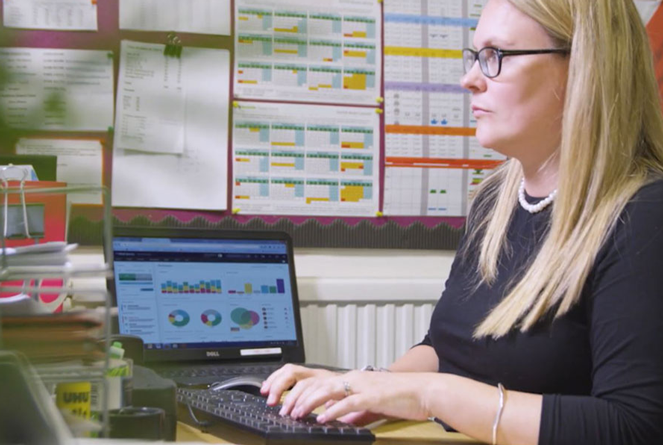As you will no doubt be aware, the current situation has put mental health and wellbeing for everyone high on the priority list. Schools are venturing into uncharted territory in the way they are being asked to operate and this, in turn, is having a huge impact on the whole school workforce. There is a huge range of resources and sources of support available to school leaders but we are conscious that many take time to read and we felt it may be helpful to highlight some useful tips rather than provide detailed guidance. We have included links to resources schools may find useful for further reading below.
Communication is key
We know that schools have some staff working from home, some attending work at school and some doing both. This presents difficulties for leaders in making sure they communicate with their staff effectively wherever they are working. Consider how best to stay in touch with your staff and keep everyone up to date – whether at home or at school, both with school news but also with other social news and activities. Ask staff regularly if this communication is working or whether you need to adapt it. Be flexible wherever you can.
Supporting your staff at this challenging time – our top tips
Be proactive and give staff regular opportunities to talk about how they are feeling – many staff are likely to be feeling more anxious and by ensuring they are able to discuss their feelings in an open way helps to remove the “stigma” associated with mental health issues. Lead by example and share your own experiences/feelings wherever you can. Encourage open and honest conversations – at appropriate times and in appropriate ways. Create times to share experiences whether in person or remotely e.g. a daily/weekly debrief session to share issues/concerns but also achievements and positive outcomes.
Be aware that sometimes staff may feel more comfortable discussing issues with other colleagues rather than their line manager/senior leaders. If your school has trained mental health first aiders/champions they will be well placed to listen, provide support and signpost staff to appropriate resources. Empower staff to speak up – show empathy, ask simple, open questions e.g. “What matters to you right now?”, listen non-judgementally, reflect back on what has been said and try to take things forward/provide assistance e.g. (“I hear what you are saying about finding it hard to focus, have you tried these techniques…”). Acknowledge there will be issues they are concerned about. Reassure them that it is “OK not to be OK”. Try and find ways to alleviate their concerns and avoid making staff feel they must constantly put on a “brave face”. Be aware of the possible signs of distress that may relate to:
- Unfamiliar working arrangements – working in small groups and in different classrooms/with different colleagues and pupils;
- Feeling isolated due to the need to work at home to shield;
- Unfamiliar work where their role has been changed to meet the current needs of the school; and
- Feeling worried about their increased level of risk, especially if they have been working at home for some time.
If you notice a staff member is struggling approach them sensitively and offer support. Ensure staff working at home receive welfare calls/emails to minimise feelings of isolation and ensure they are aware of any support available. Keep them up to date with what is happening in school to help them feel they are still a valued part of your team. Remind staff of your school’s Mental Health and Wellbeing Policy (if adopted) and all the different support they can access e.g. employee assistance programmes. Make sure it is accessible to all whether working from home or attending school. Reassure staff they don’t have to know all the answers – give them as much information as you can to assist them, but recognise they may be faced with difficult questions from pupils, parents and colleagues – ensure they feel comfortable saying they don’t know the answer. Praise staff regularly for all their hard work and achievements – this makes a huge difference to staff wellbeing and helps staff feel valued and recognised for their contribution. Ensure you provide clear, concise and up-to-date information at all stages within all plans, taking into account the needs and feelings of those directly involved. Ensure staff feel included in planning for the next steps and understand the part they play. Feeling overwhelmed and “out of control” can be mitigated by ensuring there is a clear strategy and staff are invested in this. Encourage staff to take steps to look after themselves, prioritise their wellbeing, practice self-care (get sufficient sleep and rest, relax and eat regularly and healthily) and access tools & resources as necessary.
Keep things under review
Ensure you keep in regular contact about how things are going. Encourage feedback from staff both positive and negative – keep an open mind. Encourage staff to tell you directly what they need – consider whether a staff wellbeing survey may be useful to help identify areas where staff need extra support. Ask managers to speak to their teams regularly and feedback on any concerns – change things if you need to – don’t just assume what is working well now will continue to do so.
Additional resources
You may wish to look at some of the further resources available to you:
- A blog by Dr Chris Moore writing for Ed Psych Insight giving tips for teachers to manage their wellbeing during the coronavirus crisis.
- Teach Together – a free text messaging service launched to support teachers during COVID-19.
- British Safety Council – a free online course that provides line managers with the skills and confidence to listen to and talk with someone who feels that they need to share a problem regarding their mental health.
- Able Futures – delivering the Department for Work and Pensions Access to work mental health support service for individuals, employers and apprenticeship providers
- The Mental Health Foundation Looking after your mental health during the coronavirus outbreak.
- Schools in Mind network where school staff can find and share resources, research and training.
- ACAS – fear and trust in the evolving world of work.
- Education support network have a free telephone service for education staff.
Further Guidance on Schools Reopening
If you are an existing subscriber to Education HR, log in to view further guidance and documents.
See also:


/Primary%20school%20.jpg?width=2000&name=Primary%20school%20.jpg)








.png?width=940&height=788&name=Lingfield%20College%20Case%20Study%20(5).png)
-1.png?width=1000&height=833&name=National%20Association%20of%20Head%20Teachers%20(3)-1.png)
-3.png?width=1080&height=1080&name=Untitled%20design%20(10)-3.png)






